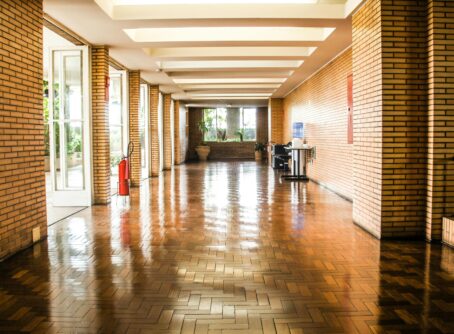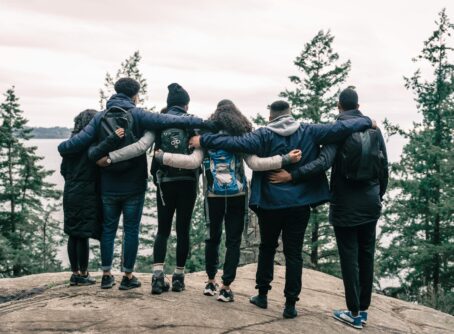
In 2014, Shaniz West, a resident of Caldwell, Idaho, arrived at her home only to find that it had been surrounded by several local police officers. The officers were searching for her ex-boyfriend, and Shaniz allowed them to search her home. She had no reason to believe the officers would do what they did next. Rather than conduct a routine search, the officers called in a SWAT team that proceeded to shotgun tear gas grenades into the home, destroying all its contents. Her ex-boyfriend was nowhere to be found. Shaniz was now homeless, and she sued for damages. In the trial court, the officers argued that, even without a warrant, Shaniz’s consenting to the officers’ search of her home protected their actions. The judge disagreed, and the defendants appealed to the Ninth Circuit Court of Appeals. The Ninth Circuit, however, reversed the lower court’s decision, arguing, “defendants are entitled to qualified immunity because, assuming that their actions violated Plaintiff’s Fourth Amendment rights, those rights were not clearly established, at the appropriate level of specificity, in August 2014.”
More recently, in 2020, the killings of George Floyd, Breonna Taylor, and others have brought policing in general under review — qualified immunity in particular. In June 2020, a Democratic majority in the House of Representatives passed the George Floyd Justice in Policing Act, which seeks to end qualified immunity, no-knock warrants, chokeholds, and other controversial police practices. In May 2021, Senators Cory Booker (D-NJ) and Tim Scott (R-SC) began looking at ways to tweak the bill to make its odds of passing in the Senate more likely. While congressional reform efforts seek a series of policy changes in policing practices, this article will focus on qualified immunity, beginning with a definition and concluding with an outline of reform opportunities based on a public justice analysis.
Qualified immunity is legal doctrine created by the Supreme Court that “protects a government official from lawsuits alleging that the official violated a plaintiff‘s rights, only allowing suits where officials violated a ‘clearly established’ statutory or constitutional right.” At a surface level, this standard appears reasonable enough. Government officials must have the ability to do their jobs without being distracted by frivolous lawsuits, and citizens must be protected from constitutional violations — qualified immunity takes both of these interests into consideration. There is one caveat: qualified immunity only applies to civil lawsuits, where a person or group seeks to hold another person or group liable for a harm or wrongful act and receive some kind of compensation, usually financial. In particular, qualified immunity can only take effect in civil lawsuits brought against government officials. If a government official violates a criminal statute, it is up to government prosecutors to bring a case against them; though such officials can still be held civilly liable for these offenses (assuming they have not been granted qualified immunity). Moreover, it is not merely a protection against having to pay damages, but a protection against having to go to civil trial in the first place. In assessing whether a government official should receive qualified immunity, courts ask two questions:
- Do the facts indicate that a constitutional right has been violated?
- If so, was the right that was violated clearly established at the time of the violation?
If a court answers no to either of these questions, then it grants qualified immunity. This two-part test was articulated in the 2001 Supreme Court case Saucier v. Katz, though qualified immunity doctrine itself was first created by the Court in Harlow v. Fitzgerald in 1982. Eight justices in Harlow voted to establish qualified immunity for government officials, and the one dissenter found himself alone because he felt the law required absolute immunity.
“Qualified immunity violates the norm of public justice because it allows government officials to bypass accountability and exert unjustified power over the citizenry.
While it may sound benign, qualified immunity can raise serious concerns, mostly due to the way courts have interpreted the phrase “clearly established.” Current qualified immunity jurisprudence takes this term extremely literally. To show that a right has been clearly established, petitioners must cite precedent in the same jurisdiction that is near-identical to their claim. In one Fifth Circuit case, a prison guard was granted qualified immunity because his pepper-spraying of an inmate for no reason did not violate the right established in previous cases where prison guards had beaten or tased inmates for no reason. It did not matter that this guard’s actions were both intentional and clearly wrong — all that mattered was that it did not violate a right previously established by the Fifth Circuit. In Shaniz’s case, the Ninth Circuit granted qualified immunity because it had not been “clearly established” at the time that a verbal consent to search did not entitle police officers to shoot tear gas into a home. So, broadly speaking, the effect of a strict interpretation of the “clearly established” rule has been the following: the most outrageous, the most violative, and the most unjust actions are the most likely to be protected by qualified immunity.
QUALIFIED IMMUNITY AND POLICING
As pointed out above, qualified immunity has come under scrutiny because the criminal justice system — especially policing — has come under scrutiny. Qualified immunity is a justice issue because it eliminates the ability to seek damages for rights violations that often inflict serious financial harm and because it exacerbates existing racial and economic disparities.
People of color are disproportionately the victims of police violence and wrongful incarceration. One study finds that African Americans are more than twice as likely to be killed by police than their white counterparts. Similarly, one out of every three African American boys can expect to spend time in prison, compared to one in seventeen white boys. People of color are also treated more harshly when it comes to issues like drug crime and the death penalty, and they make up a disproportionate share of those wrongfully convicted for crimes.
Qualified immunity is the first line of defense for police officers responsible for the disproportionate levels of arrests, brutality, and harassment of people of color because it prevents a trial altogether. Even worse, given the current judicial understanding of qualified immunity doctrine, the most egregious acts of racial injustice in policing are the most likely to be protected from civil liability. Qualified immunity was not articulated with this in mind; in fact, the Harlow case that established qualified immunity did not even involve a police officer. But that does not change the fact that it has become a legal bulwark against police accountability for misconduct that disparately impacts people of color.
Qualified immunity also perpetuates economic inequality. Recall Shaniz’s story — what was the procedural injustice that she experienced? It was her inability to sue for damages. Say, for example, a drunk driver hit the side of Shaniz’s home. In that case, she would have been permitted to bring a case seeking compensation, and it seems more than likely that she would have received compensation and not become homeless as a result of the damage to her home. The ability to seek damages gives victims the power to right financial wrongs and protect their livelihoods. Qualified immunity inhibits this power for all, but it disproportionately harms under-resourced individuals and families. When the wealthy find themselves in an economic crisis, they have financial and social capital to draw upon. Take the COVID-19 pandemic, for example: by August 2020, the highest earners had completely recovered their jobs, while those making less than $20 per hour had not yet recovered even half of the jobs lost in the early months of the pandemic.
This principle remains true when it comes to the impact of qualified immunity. Of course, this does not mean the emotional, social, or mental damages incurred by the wealthy are any lesser; it simply means that the financial ramifications of police misconduct affect the wealthy less heavily than they do the poor. The poor have few social or financial securities to fall upon in times of need. When property is destroyed or family members brutalized, their only realistic tool for justice is the legal system. But even that can be too costly, time-consuming, and sometimes not even worthwhile. Oftentimes, wealthy and influential police unions hire lawyers that negotiate collective bargaining agreements to protect police in case of misconduct to preemptively tilt the legal system in their favor. These agreements make it such that cities or municipalities are financially responsible for any civil compensation due for police misconduct. This means that local governments are disincentivized from pursuing criminal charges, because if they are successful, the civil compensation falls on their shoulders. In any case, the poor are getting the short end of the stick. Their livelihoods depend on the recovery of damages — whether it be a home or car destroyed by police, or in extreme cases, the injuring or death of a breadwinner. So, even though qualified immunity protects police officers regardless of a victim’s socioeconomic status, the reality is that it disproportionately harms the poor, stunting their economic flourishing and sending them deeper into a vicious cycle of poverty.
PUBLIC JUSTICE APPLIED
Qualified immunity is bad policy because it opens the door to a series of injustices. It is a violation of the norm of justice we expect in society; that is, it prevents people from receiving what they need to flourish. But even that understanding is dissatisfying, because the unjust application of qualified immunity affects more than just individuals — it affects our institutions, too. Current qualified immunity doctrine is unjust because it keeps individuals from receiving their due and because it violates the principle of public justice. Put simply, public justice is a principle of justice that articulates the unique, necessary, and equally important roles that all social institutions play in the promotion of human flourishing. In particular, the principle of public justice acknowledges that while government has a critical role in securing societal well-being, its role is limited to “promoting policies and practices that uphold the ability of other institutions and associations to make their full contributions to human flourishing.” Qualified immunity violates the norm of public justice because it allows government officials to bypass accountability and exert unjustified power over the citizenry; it is, by design, the government’s mechanism for protecting itself from civil justice at the expense of the people — especially the most vulnerable. Essentially, qualified immunity structures society such that government is elevated above those it governs.
Christians should find this imbalance unacceptable. God cares about human flourishing and a publicly just ordering of society where the institutions God has ordained — governments, families, businesses, etc. — can properly support God’s redemptive work. Qualified immunity impacts all citizens in their ability to hold the government properly accountable, but in particular, it inhibits the flourishing of under-resourced communities of color. The systemic and structural racism embedded in the criminal justice system — especially in policing — is always a violation of the norm of public justice. When law enforcement cannot be held civilly accountable for misconduct with a disparate racial impact, justice for victims of color is left in the hands of prosecutors who may or may not bring criminal charges. Public justice requires that citizens— all citizens — have the ability to hold the institution of government accountable, and that government holds itself accountable, too. Qualified immunity also violates the norm of public justice with respect to economics, because all families and citizens should have the economic opportunity to flourish. The economically vulnerable cannot flourish in the economy when government officials can violate their rights and properties without financial consequence. Furthermore, government fails in its capacity to mediate the economy when it stunts the ability of the under-resourced to participate in that economy.
“One out of every three African American boys can expect to spend time in prison, compared to one in seventeen white boys.
Public justice also requires that each institution play a role in realizing publicly just societal structures. For this reason, our approach to reforming qualified immunity must be multifaceted. The only successful attempt to reform qualified immunity occurred at the state level in Colorado. In 2019, Elijah McClain was killed by police after being stopped, placed in a chokehold, and given a powerful sedative. He was walking home from a convenience store when a caller nearby reported a Black man walking through the neighborhood “looking sketchy.” This sparked a massive public outcry, which led to several changes to the state’s criminal justice system a year later — including an overhaul of qualified immunity doctrine. The new law prevents law enforcement from using qualified immunity as a defense in civil lawsuits. In addition, officers who lose in court may be required to pay 5 percent of damages — up to $25,000 of their own money — and put their certifications and badges at risk. Since the bill’s passing, several other states have proposed laws that would make similar changes.
It is undeniable that there are serious competing interests when it comes to qualified immunity reform. On the one hand, government officials — police included — should be able to perform their duties without undue interference in the form of frivolous lawsuits. On the other hand, citizens are owed justice in the form of damages when government officials violate their rights. A public justice framework necessitates that something must be done to change qualified immunity doctrine, and that any change requires a multifaceted approach which prepares for any unintended consequences. Really, this leaves us with two options. The first option is the approach Colorado took. The Colorado law satisfies the first standard: reform occurred because of a mass public outcry at Elijah McClain’s death that pushed state officials to respond with the new law. There are also signs that at least some unintended consequences will be mitigated by insurance companies offering coverage to police officers if they find themselves liable for their actions in court. Finally, the reform is measured — it only revokes qualified immunity as a defense for law enforcement, not other government officials.
A second option for reform is to correct the judicial interpretation of qualified immunity and introduce mechanisms to review qualified immunity claims. In the past, federal and state legislatures have responded to poor judicial decisions with laws that require courts to approach cases in a particular way. An example of such a law is the federal Religious Freedom Restoration Act (RFRA) — and various state versions — which requires courts to review religious freedom claims using “strict scrutiny” if claimants sue under RFRA. One way to reform qualified immunity could be to pass a law similar to RFRA. This reform would keep courts from strictly interpreting a given set of facts in a case where qualified immunity might be granted. Such reform would require courts to broaden their understanding of “clearly established rights” to mean more than just “factually identical circumstances.” Essentially, it would limit grants of qualified immunity to rare circumstances when government officials unknowingly violate an obscure or poorly promulgated right. That way, officials are protected when they act in good faith, not when they violate a clearly established right — that is, one which is obvious throughout civil rights law or known through a common, intuitive sense of justice. In addition to this new review standard, legislatures could consider an independent review process for qualified immunity orders, conducted by qualified state and local officials or leaders in the community. This requirement would introduce a second check on judicial independence when it comes to qualified immunity claims and would include the community voice necessary for the new law to exhibit public justice. But there is no guarantee that such a law would survive judicial review. When RFRA was passed, it was intended to cover states, too, but the Supreme Court determined it could only apply to federal law. The same could happen to similar qualified immunity reform efforts, and extra checks like a review body would need to be on solid legal footing before implementation.
CONCLUSION
Reforming qualified immunity will be no easy task. The simple fact that no reform efforts have been successful until this past year means that there is little data with which to measure outcomes. And, as always, competing interests remain in tension. As much as public justice requires that the government be held accountable for its actions, it also requires that the government have the ability to perform its duties as a God-ordained institution in society. Still, we must address when law enforcement officers go beyond the scope of their duties — times when qualified immunity often bars our most vulnerable citizens and families from seeking justice. Having weighed these competing facts and claims, it is clear that qualified immunity as it is now prevents the proper realization of public justice. As Christians and as citizens, we must advocate for a system that is both workable and just. Time will tell what sort of reform produces the best, most publicly just results. There will be missteps and good-faith attempts that fail, voices that discourage and question, and moments where positive change seems out of reach. In any case, we must continue to work toward a society that reflects public justice — one where all people and all institutions receive what they are due to the end of flourishing. This work is not merely a matter of criminal justice, it is a matter of public justice and the extent to which people and institutions can live into their creational purposes.
Caleb Crary is a senior political science student at Whitworth University in Spokane, Washington. Caleb was a research intern for the Center for Public Justice during the Spring of 2021 and will assume the same role this coming Fall, along with additional responsibilities as a development intern.






